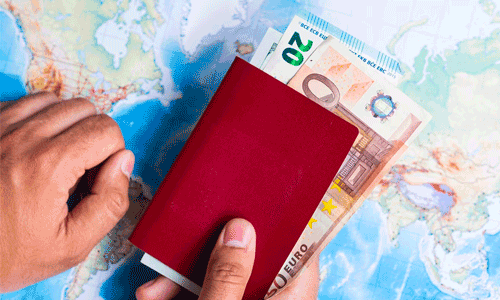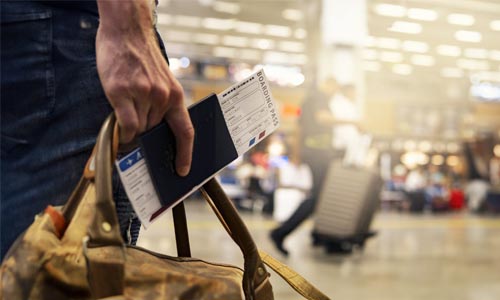Hajj & Umrah 2025: Everything You Need to Know
Hajj and Umrah, two significant Islamic pilgrimages, hold immense spiritual importance for Muslims worldwide. In the UAE, these rituals are deeply respected and observed with great devotion. Currently, the country is seeing an increase in the organisation and facilitation of these pilgrimages, especially with the introduction of electronic visas and affordable travel packages.
This guide will provide an understanding of what Hajj and Umrah entail, the differences between them, and how to prepare for and perform these sacred rituals.
What is Umrah?
Umrah is a minor Islamic pilgrimage to Mecca, Saudi Arabia, that can be undertaken at any time of the year.
Unlike Hajj, which has specific dates as per the Islamic lunar calendar, Umrah can be performed at any time and is not compulsory. Nevertheless, it is highly recommended for Muslims who are physically and financially able to carry it out.
Umrah consists of several rituals, meant to symbolise the unity of Muslims and their submission to Allah.
Key Aspects of Umrah
- Expected Date for 2024: Umrah can be performed at any time during the year. However, the specific dates and regulations can vary — it is essential to check for any announcements from the Saudi Ministry of Hajj and Umrah for the 2024 season.
- General Requirements: To perform Umrah, pilgrims must possess a valid Umrah visa or tourist visa for entry into Saudi Arabia. The tourist visa is permitted from certain countries, including the US, UK, and Schengen area countries. However, there are specific requirements such as having comprehensive health insurance and proof of accommodation and financial stability.
- COVID Testing Requirements: For Umrah in 2024, Saudi Arabia has largely lifted the COVID-19 vaccination requirement. However, while pilgrims are not required to present a negative COVID-19 test for entry, they should stay updated with any changes to these regulations.
- Umrah Permit: Pilgrims must obtain an Umrah permit through the Nusuk app, an integrated platform provided by the Saudi authorities. This permit is required to perform Umrah and pray in the Holy Rawdah.
All pilgrims, including Saudi residents and international visitors, need to apply for this permit.

How to Do Umrah?
The Umrah procedure includes the following steps —
- Ihram: Put on special white clothes (Ihram) and set your intention to do Umrah.
- Tawaf: Walk around the Kaaba seven times starting from the Black Stone.
- Sa’i: Walk seven times between two hills — Safa and Marwa.
- Haircut: Men shave or cut their hair, while women trim a small part of their hair.
What is Hajj?
Hajj is a major Islamic pilgrimage to Mecca. As one of the five pillars of Islam, it is a mandatory religious duty for Muslims that must be carried out at least once in their lifetime by all adult Muslims. The pilgrimage occurs from the 8th to the 13th day of Dhu al-Hijjah, the last month of the Islamic calendar.
For 2024, the Hajj rituals are expected to commence on the evening of Friday, June 14, 2024, and continue until the evening of Wednesday, June 19, 2024.
Note: The aforementioned dates are tentative as they depend on the sighting of the moon.
Key Aspects of Hajj
- Expected Date for 2024: June 14 to June 19, 2024, based on the Islamic lunar calendar
- Hajj Fees: For UAE residents, the cost for Hajj packages in 2024 will be around AED 27,500. This includes costs related to the Hajj visa, airfares, coordination, meals, tents in Mina and Arafat, and transportation within Saudi Arabia. Some agents may require a minimum payment of AED 10,000 to book these packages.
- General Requirements: Pilgrims must have a passport valid for at least 6 months, complete a Hajj visa application, and provide a certificate of vaccination for meningitis and polio (as well as yellow fever for those from certain countries). Women under 45 must travel with a Mahram (male guardian), though there are conditions under which older women may travel without one.
- Hajj Permit: All pilgrims need to obtain a Hajj permit to perform the rituals. This can be acquired through official platforms like the Absher portal in Saudi Arabia.
- How Many Days is Hajj: The pilgrimage lasts for approximately five to six days, from the 8th to the 13th day of Dhu al-Hijjah.
How to Do Hajj?
Given below are the general Hajj ritual procedures —
- Ihram: Enter a state of holiness by wearing Ihram clothing and making Niyyah (intention) for Hajj.
- Mina: Travel to Mina and spend the day and night in prayer.
- Arafat: Move to Arafat and spend the day in prayer and reflection.
- Muzdalifah: Collect pebbles and spend the night after sunset.
- Rami (Jamarat): Throw pebbles at the three pillars in Mina.
- Sacrifice: Offer a sacrifice (if able) then shave or cut your hair.
- Tawaf Al-Ifadah and Sa'yee: Perform Tawaf around the Kaaba and Sa'yee between Safa and Marwah.
- Tawaf Al-Wada: Perform the final Tawaf before leaving Mecca.

Difference Between Hajj and Umrah
Here's a simple comparison between Hajj and Umrah —
|
Aspect |
Hajj |
Umrah |
|
Meaning |
Major Islamic pilgrimage |
Minor Islamic pilgrimage |
|
Timing |
Specific Islamic months (Dhul-Hijjah) |
Any time of the year |
|
Duration |
Several days (5-6 days) |
Shorter, usually a few hours |
|
Obligation |
Mandatory once in a lifetime if able |
Optional but highly recommended |
|
Rituals |
More complex, includes Arafat day, stoning at Jamarat |
Mainly involves Tawaf and Sa'i between Safa and Marwah |
|
Significance |
Fulfilment of a pillar of Islam |
Spiritual purification, not a pillar |
How to Prepare for Hajj and Umrah?
Here's how to prepare for Hajj and Umrah —
- Health Check-up: Ensure you're physically fit and have all the required vaccinations.
- Study Rituals: Understand the steps of Hajj and Umrah and their significance.
- Financial Planning: Budget for the trip and settle debts.
- Important Documents: Prepare necessary documents like passport, visa, and travel tickets.
- Pack Smart: Bring appropriate clothing and essentials for the desert climate.
- Spiritual Preparation: Focus on your intentions, prayers, and Umrah wishes.
- Check Dates: Note the Hajj date 2024 and plan accordingly.
- Learn Duas: Memorise prayers for different rituals.
Final Say
In wrapping up, for those preparing for the profound journey of Hajj or Umrah, it’s important to address every aspect of preparation with due diligence. This encompasses not only the physical and logistical preparations but also the spiritual readiness for a deep and reflective experience.
As you step forward on this sacred path, may your journey be filled with insightful moments, spiritual growth, and peaceful contemplation!
More From Travel Insurance
- Recent Articles
- Popular Articles














